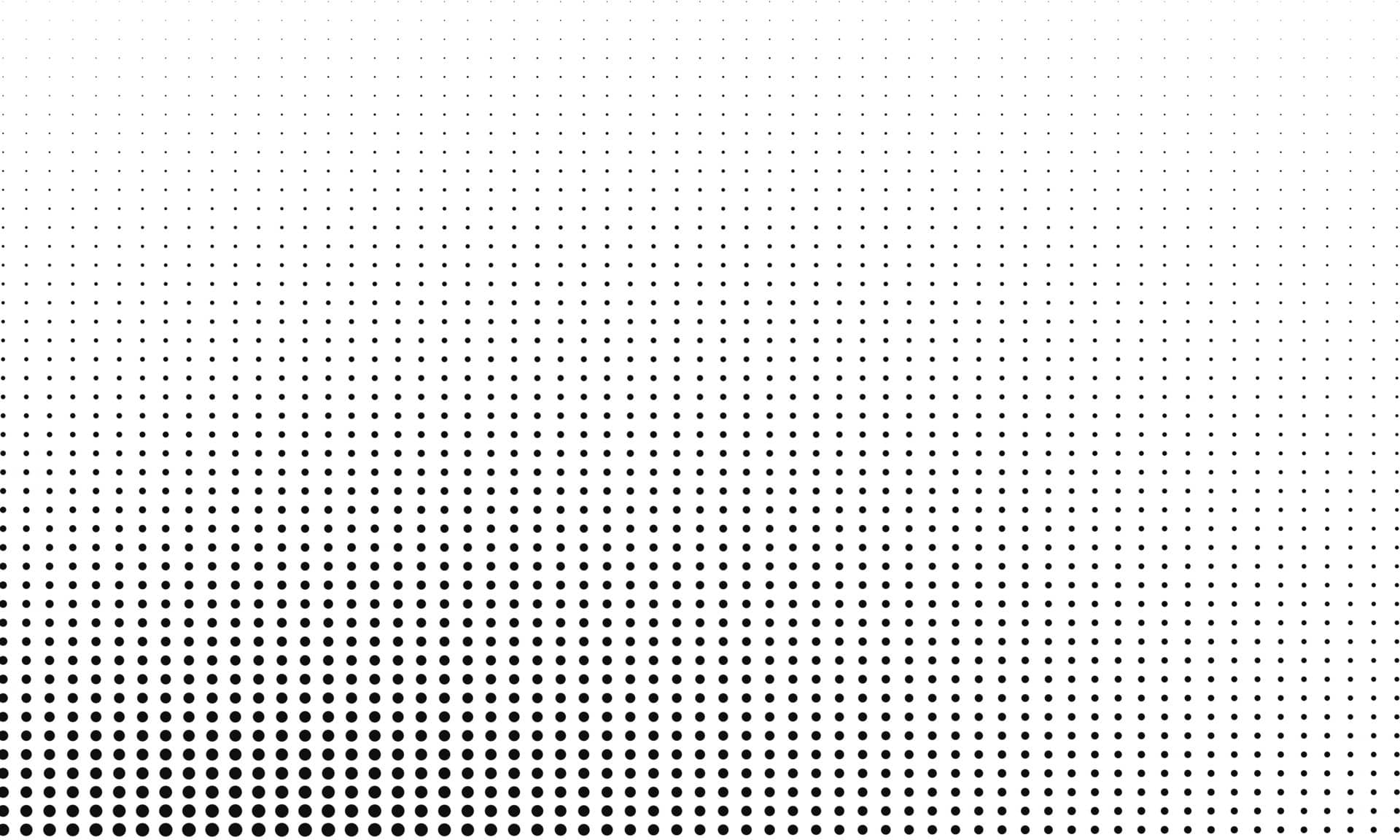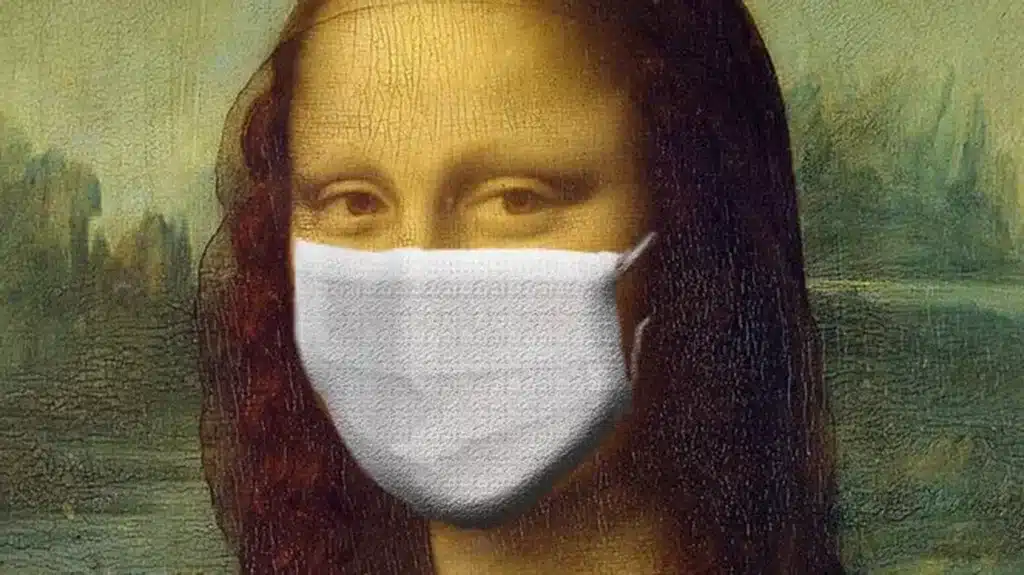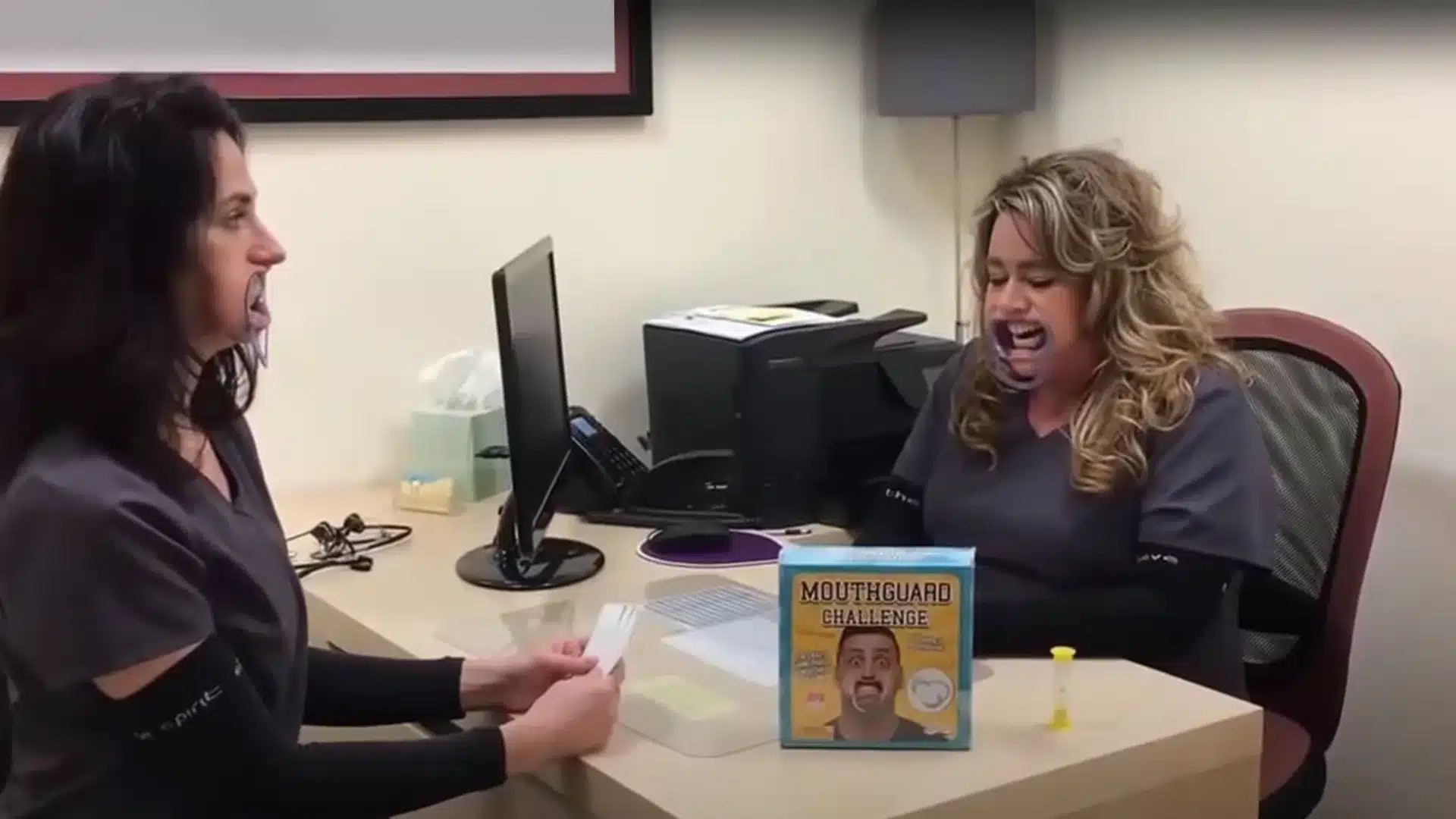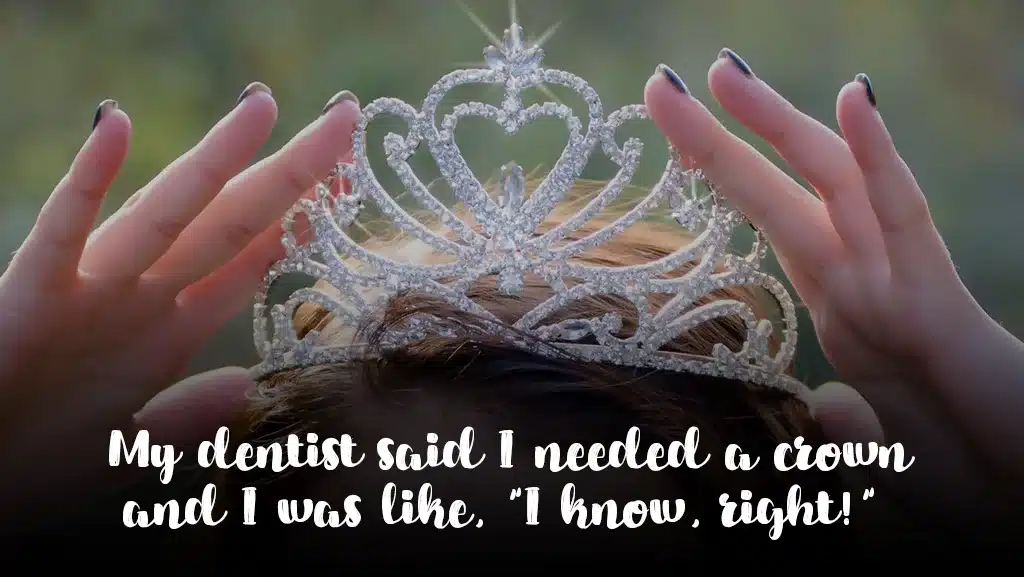Greetings, Tooth Fans!
I always liked the TV show “The Walking Dead.” I think zombies are gross, and there’s no way I could survive in a world overrun by them, but I really enjoy scary cinema.
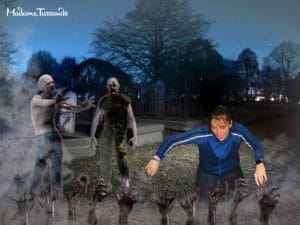
I like the adrenaline rush and the imagination that goes into horror movies, and I like sitting back afterwards and knowing that no matter how bad things feel in my life at the moment, at least they’re not THAT bad.
That’s actually a fairly common psychological technique called “downward comparison.” We all do it, to some extent or another.
Remember when your Mom used to say, “You have to eat all your vegetables because there’s starving kids in China?” You’re supposed to appreciate what you have because there are others who have it worse, right?!
This technique can be somewhat effective at brightening one’s mood, but when basing it off of real people I always had a problem with it, even as a kid. In my mind, no matter how bad you had it, you could always find someone who had it a little bit worse than you.
You could be a starving child in Africa, but at least you don’t have amoebic dysentery like Billy does in the next village over. That doesn’t mean that your situation isn’t also bad, just because Billy has it worse, nor should it make you feel better that Billy is suffering more than you are. And thus, as a young teenager, I became acquainted with the concept of relativism, but I digress . . .
While it didn’t make me feel better to compare myself to real people who were suffering, I did appreciate that my little bit of anxiety was nothing compared to the fight or flight stimulus going on in people who were being attacked by aliens, or running away from zombies, or who were exposed to a crazy contagious virus . . . and suddenly it’s gotten a bit real.
But to quote Douglas Adams, from one of my favorite books, The Hitchhiker’s Guide to the Galaxy, “Don’t Panic.” This blog post isn’t meant to evoke more fear in you; the media is doing enough of that already!!
I’m here to tell you a little bit about how your friendly neighborhood dental office is reacting and to explain some of the things you might not know.
What Exactly Is a Corona Virus Anyway?
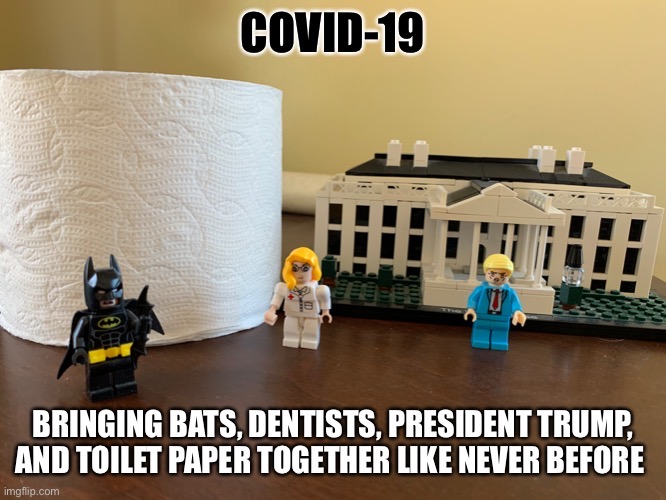
A little bit about COVID-19 in the way of background: Corona viruses are actually a family of viruses which cause a variety of diseases. The common cold is an example of a corona virus, as is SARS (Severe Acute Respiratory Syndrome). They are transmitted between animals and humans, and this particular corona virus, COVID-19, was thought to have its origin in bats.
Corona viruses often cause respiratory symptoms and are spread through coughing, sneezing, and contact with droplets from the mucous membranes. The name “corona” comes from the Latin, meaning “crown” because of the appearance of the virus under the microscope.
We learned about corona viruses in my infectious diseases courses in dental school. We weren’t particularly scared of them. We were taught that the flu (influenza), was a more threatening and deadly virus, and was difficult to vaccinate because of its high mutation rate. Each year vaccines are developed on the basis of what they think will be the most virulent strains of the flu for the following year, but it’s anybody’s guess how the virus will actually mutate. This explains why the flu shot is effective against some strains of the flu but not others, and why someone can faithfully get their flu shot yet still contract the flu. It’s all about odds.
The Evolution of Fear
So when I heard about this corona virus thing going on in China my first thought was, “eh it’s no big deal. China’s population is just having a really bad cold.” And if you’ve been in the office in recent weeks, you probably heard me talk about how I think the media is blowing this completely out of proportion and scaring the living daylights out of people for no good reason, since there are more people who die of the flu every year.
I was annoyed that masks were being hoarded by consumers and we were limited from our suppliers as to how many we could buy, since masks are required to do our job! I wasn’t worried about infection spread in the office because in dentistry we take universal precautions (more on this later).
And then things changed. I started to hear about how Italy was shutting down. I’m a Roman Catholic and I learned that the Vatican had stopped celebrating public Masses. Things started to feel very different. The energy in the office felt even more different on the day the first confirmed COVID-19 case in Maine arrived and we were getting constant updates in the following days on school closures and preparedness for what was being declared a National Emergency and a State Emergency. I began to feel a little less distance between myself and those scary TV shows I watch, like The Walking Dead.
Infection Control
We desperately wanted to stay open. In dentistry we use universal precautions. What that means is that we treat each patient as though they already had an infectious disease such as HIV, Hepatitis B, or the like. That translates into us using personal protective equipment, in the form of things like:
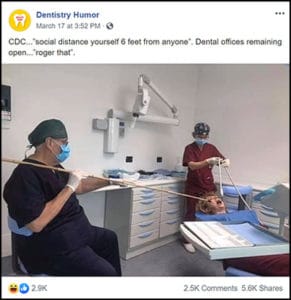
- Masks and gloves, changed with each patient, to prevent transmission of any possible infectious disease from you to us or from us to you
- Placing physical barriers like plastic bags or tape on the equipment we use prior to your arrival and following your procedure removing them and throughly disinfecting each room using Cavicide, a medical grade disinfectant which is tuberculocidal (will kill Tuberculosis), the gold standard of killing a virulent organism
- Many of the products we use are disposable or single use, like the saliva ejector (Mr. Thirsty), high volume suction tip, air water syringe, any needles we used, even the container of bonding agent we use for your fillings
- The products which are not single use are thoroughly disinfected and items such as the drill bits and surgical instruments like the extraction forceps or the handpieces (drills) are packaged in the sterilization area and sent through the autoclave. The autoclave is basically a high temperature and pressure steam oven which thoroughly sterilizes all of our instruments so we may reuse them. We regularly test the sterilizer using biological indicators to verify its effectiveness in killing various microorganisms
During the early days of this national emergency we also added additional measures such as:
- Asking that any patient who had traveled abroad within the past 2 weeks or any patient exhibiting respiratory symptoms reschedule their appointment
- Asking that hand sanitizer be used by all our patients upon entering the building
- Offering to allow patients to stay in their cars in the parking lot until their appointment time and then receive a text message alerting them it was time to come in
- Removing all magazines from the waiting room and disinfecting all hard surfaces in the waiting room, including the leather couches, and all the counters at the front desk every hour
- Taking patients’ temperatures as you walked through the door to screen for fever
The Government Warnings
As we learned more about the virus, however, and the nation’s battle with containing it, we were unable to remain open for elective procedures. Elective procedures are defined as any dental procedure that is not an emergency (treatment of significant pain and swelling).
Both the American Dental Association and the Maine Dental Association recommended that elective dental procedures be postponed for at least two weeks based on recommendations from President Trump’s administration and recommendations from Governor Mills’ administration.
Here’s why:
COVID-19 is a particularly virulent form of corona virus, one which is transmissible through aerosols which linger in the air far longer than a typical virus does. Our masks, which we use for standard protection, block access to 95% of viruses and bacteria in the air, but COVID-19 is small enough that unless we were using N95 respirator masks (which are EXTREMELY hard to come by right now, and are difficult to breathe with for long term use anyway), we would not be able to adequately protect ourselves, or our patients from the virus. We generate a LOT of aerosols in our profession, whether we’re using a handpiece with air and water coolant to prepare your tooth, or a hygienist is using an ultrasonic instrument, also powered by air and water, to remove tartar.
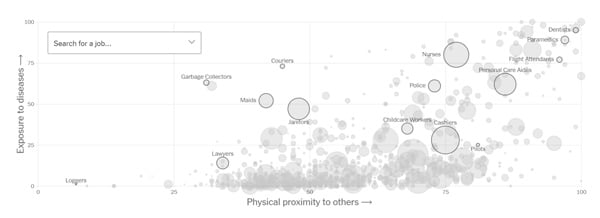
This graphic from the New York Times exhibits the professions which are at most risk to contract the illness, based on the exposure to disease on the y axis and the physical proximity to others on the x axis. You’ll see that dentists are on the upper right of the curve. See the bubble all the way to the farthest corner, the profession with the MOST risk? That’s your dental hygienists.
About a year ago Dr. Drews invested in a surgical grade air filtration system called Surgically Clean Air which uses a 6 stage filtration and sterilization process to remove odors, gases, allergens and viruses from the air. They are strategically positioned around the office to help filter and purify the air, since we are aware that the procedures we perform generate a great amount of aerosols.

Our awesome air filtration system is one reason we felt okay initially remaining open; but in the end, it’s also about conserving masks and gloves for the healthcare workers who need access to them most – those on the front lines dealing with the virus first hand.
It’s also about being in close proximity to others. Unlike the flu, with the incubation of 1-4 days, COVID-19’s incubation period is up to 2 weeks, meaning you could have no symptoms at all for 2 weeks and still be walking around spreading the virus through your contact with others. This is why the CDC is placing so much emphasis on thoroughly washing your hands – to protect yourself and others.
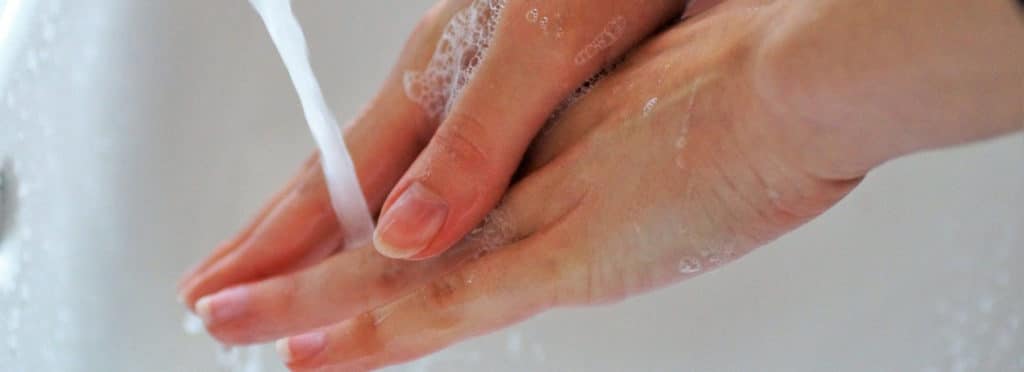
And while the majority of us will make it through this time without many symptoms which are worse than the common cold, for those who have underlying health issues, particularly the elderly or those who have frail immune systems, this virus is quite deadly, and the hospitals simply aren’t equipped with the amount of resources it would take to adequately care for everyone who would need life saving treatment all at once.
That’s why they are suggesting these extreme measures of social distancing, self quarantine, and the like – to avoid the influx of REALLY sick people all at the same time, hopefully avoiding having to make decisions on who gets the life saving treatment and who doesn’t. That’s the theory behind what’s going on right now.
The Days Ahead
In the end, this will not be a zombie apocalypse. The vast majority of us will survive and be just fine. I can still watch The Walking Dead and feel like at least life isn’t THAT bad. A lack of toilet paper (which I will never understand) is different than no electricity, running water, or (God forbid) the Internet.
For now, Dr. Drews and I will catch up on the administrative tasks we never seem to be able to find time to address, and will see patients for emergencies only. If you are experiencing a true dental emergency, please contact our office via telephone (207) 782-5308 and follow the instructions. Otherwise, we will be in contact with you when we know more about resuming our schedules, and we look forward to seeing (and treating) your smile at that time! 🙂
Love & Social Distancing,


